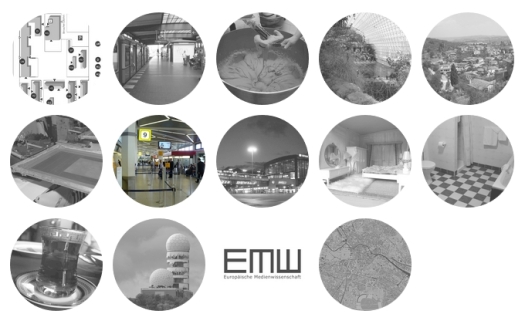
›[The] visualist bias has dramatically influenced the way in which anthropology itself has evolved. Thus, one emergent and potentially very important aid to the refocusing of the discipline lies in attending to kinds of knowledge that have proved resistant to being coded in graphic or visual ways.‹ (Michael Herzfeld on the future of anthropology; Herzfeld 2002, 245)
 Today, there is an increasing concern for the senses in the humanities. Some even venture to proclaim a ›sensory turn‹. In cultural anthropology, a greater awareness for sensory phenomena and embodied subjectivities, for materiality and atmospheres is reflected in approaches such as an ›anthropology of the senses‹ (Howes 1991) or a ›sensory ethnography‹ (Pink 2009). However, in today’s academic practice many scholars still appear to be utterly reluctant to go beyond text, images, or diagrams as a means of communicating knowledge–even when presenting research on the human sensoriality.
Today, there is an increasing concern for the senses in the humanities. Some even venture to proclaim a ›sensory turn‹. In cultural anthropology, a greater awareness for sensory phenomena and embodied subjectivities, for materiality and atmospheres is reflected in approaches such as an ›anthropology of the senses‹ (Howes 1991) or a ›sensory ethnography‹ (Pink 2009). However, in today’s academic practice many scholars still appear to be utterly reluctant to go beyond text, images, or diagrams as a means of communicating knowledge–even when presenting research on the human sensoriality.
Now  ›Cultures of Auditory Knowledge–Knowledge of Auditory Praxis‹, an interdisciplinary conference held at the University of Music and Performing Arts Graz and the Karl Franzens University of Graz in June 2014, offered just the right setting to address and, indeed, transgress these representational conventions within an academic context. With a paper on ›Soundscapes and Ethnography. Field Recordings within Urban Studies‹ I did not try to construct another theory on sound in the city. Rather, I aimed to allow for some first-hand experiences, or at least to provide some ›sensory material‹ by presenting a composed sequence of recordings from the field.
›Cultures of Auditory Knowledge–Knowledge of Auditory Praxis‹, an interdisciplinary conference held at the University of Music and Performing Arts Graz and the Karl Franzens University of Graz in June 2014, offered just the right setting to address and, indeed, transgress these representational conventions within an academic context. With a paper on ›Soundscapes and Ethnography. Field Recordings within Urban Studies‹ I did not try to construct another theory on sound in the city. Rather, I aimed to allow for some first-hand experiences, or at least to provide some ›sensory material‹ by presenting a composed sequence of recordings from the field.
Listening to this sound sample is an experiment you can partake of: Can these recordings actually convey a ›sense of place‹ (Feld/Basso 2009)? Do they reveal something about the people living here, about the atmosphere and mood of this particular ›sonic lifeworld‹?
Continue reading “›Background Noise‹. Field Recordings and Ethnography”
52.556073
13.338931
 Hannah Höch, ›Untitled‹, 1921
Hannah Höch, ›Untitled‹, 1921
 Photo by Laura Caroline Ranglack (Galaxaura)
Photo by Laura Caroline Ranglack (Galaxaura) photo:
photo: 





 Today, there is an increasing concern for the senses in the humanities. Some even venture to proclaim a ›sensory turn‹. In cultural anthropology, a greater awareness for sensory phenomena and embodied subjectivities, for materiality and atmospheres is reflected in approaches such as an ›anthropology of the senses‹ (Howes 1991) or a ›sensory ethnography‹ (Pink 2009). However, in today’s academic practice many scholars still appear to be utterly reluctant to go beyond text, images, or diagrams as a means of communicating knowledge–even when presenting research on the human sensoriality.
Today, there is an increasing concern for the senses in the humanities. Some even venture to proclaim a ›sensory turn‹. In cultural anthropology, a greater awareness for sensory phenomena and embodied subjectivities, for materiality and atmospheres is reflected in approaches such as an ›anthropology of the senses‹ (Howes 1991) or a ›sensory ethnography‹ (Pink 2009). However, in today’s academic practice many scholars still appear to be utterly reluctant to go beyond text, images, or diagrams as a means of communicating knowledge–even when presenting research on the human sensoriality.

 Photo by Judith Willkomm
Photo by Judith Willkomm


